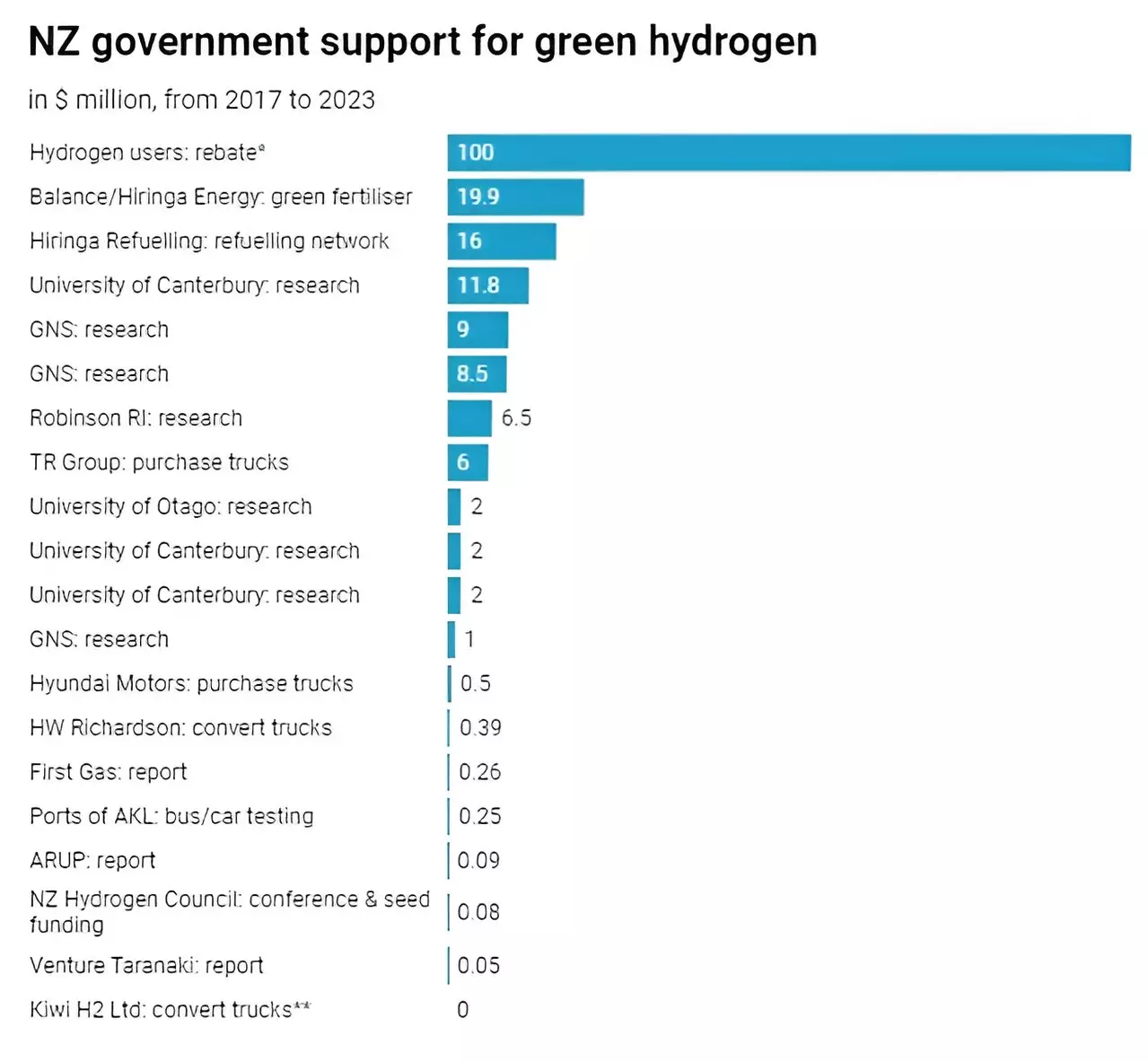The recent setback in the delivery of hydrogen-powered trucks to New Zealand, paired with the removal of a government rebate scheme for green hydrogen users, has cast a shadow of uncertainty over the country’s transition to this promising energy technology. Despite the government’s previous investments and support for green hydrogen initiatives, critical voices regarding its feasibility and sustainability have been notably absent from the conversation.
The enthusiasm for green hydrogen in New Zealand has been fueled by substantial government funding and the establishment of the New Zealand Hydrogen Council. Proponents of green hydrogen argue that it is crucial for decarbonizing sectors that are difficult to electrify directly, such as heavy road transport, shipping, and fertilizer production. The narrative surrounding green hydrogen has been largely positive, with references to its potential to replace hydrocarbons and contribute to global decarbonization efforts.
While the optimism surrounding green hydrogen in New Zealand is palpable, there is a glaring lack of critical analysis in the public discourse. The limited coverage of green hydrogen has predominantly been positive, with only a fraction of articles containing any form of critical examination. Experts have raised concerns about the efficiency and cost-effectiveness of green hydrogen, with some suggesting that battery electric vehicles may be a more viable alternative for heavy transport.
Recent developments, such as advancements in battery technology and the rising costs associated with green hydrogen, have prompted reevaluation of its role in the future of transportation and energy systems. Examples from other countries, like Germany and Austria, where green hydrogen initiatives have faced challenges and setbacks, serve as cautionary tales for New Zealand.
In order to make informed decisions about the future of green hydrogen in New Zealand, it is imperative to embrace a more nuanced perspective. Recognizing that hydrogen is an energy carrier, not a standalone energy resource, is essential. Critiques of green hydrogen should be welcomed into the discussion to ensure that government policy is guided by independent, evidence-based advice rather than commercial interests.
As New Zealand continues to navigate its energy transition landscape, a shift towards a more balanced and critical approach to green hydrogen is necessary. By prioritizing applications with the greatest potential for decarbonization and sustainability, such as green steel production and alternative fuel sources, New Zealand can align its energy strategy with its environmental goals. Adapting to changing technologies and market dynamics will be key in shaping a more resilient and sustainable energy future for the country.


Leave a Reply